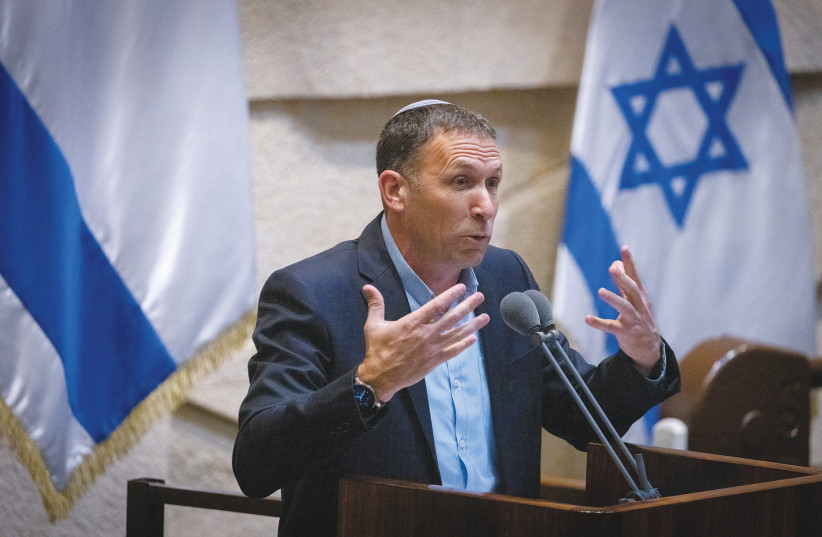Religious Services Minister Matan Kahana has said he intends to pass legislation that would give the religious services minister control over the disciplinary process for municipal chief rabbis in order to preserve freedom of speech for rabbis serving in these positions.
His comments were criticized, however, since municipal chief rabbis are in effect never subject to disciplinary procedures – despite gross violations of the regulations for public servants relating to their behavior and public comments.
The minister’s decision also comes following one by the state ombudsman for judges last week that Kahana, as minister, must reprimand Chief Rabbi Yitzhak Yosef over a conference he organized, and a statement that emanated from it, denouncing government legislation.
Kahana was critical of the decision, saying it harmed the ability of rabbis to express their opinions on religious issues and would thereby damage their position vis-à-vis religious Israelis who wish to hear rabbis’ opinions.
Municipal chief rabbis serve under the Religious Services Ministry but are subject to disciplinary procedures through the Justice Ministry and the Chief Rabbinate.
In order for a municipal chief rabbi to have a disciplinary hearing, the justice minister needs to file a complaint to the Council of the Chief Rabbinate.
The council then needs to establish a disciplinary committee comprising one rabbinical judge and two municipal chief rabbis, who must hold the disciplinary hearing.
The committee then sends its recommendations to the justice minister, who then takes the issue to the president of the Council of the Chief Rabbinate, who has the final decision on whether disciplinary measures should be taken, if at all.

In practice, there have been virtually no instances of disciplinary steps taken against municipal chief rabbis in the last two decades.
One of the most egregious examples of rabbis who have violated the regulations governing their service is that of the 90-year-old chief rabbi of Rishon Lezion, Rabbi Yehuda Wolpe.
Wolpe has served in his post for 51 years, even after being convicted of witness tampering in 2018, after an employee in the local rabbinate filed a police complaint against him for alleged bribery.
The rabbi remains in his job since the Council of the Chief Rabbinate has refused to remove him from office.
Another example is Jerusalem Chief Rabbi Shlomo Amar, who has denounced non-Orthodox Jews as worse than Holocaust-deniers and described homosexuals as “a cult of abomination.”
And Chief Rabbi of Safed Rabbi Shmuel Eliyahu has made numerous racist and political remarks that are forbidden by the terms of employment for public servants.
Following the ombudsman’s decision on Yosef last week, Kahana said that “freedom of speech and the comments of rabbis and spiritual leaders, even if they have a government position, goes to the heart of the trust which those who adhere to the teachings of their moral and spiritual leaders have in them.
“The day that rabbis are silenced will be the day they lose this trust of their adherents,” he said, adding that he had personally been offended several times by Yosef’s comments in recent months but has “gritted my teeth” and remained silent.
On Sunday, Kahana said he would introduce legislation to remove the authority over disciplinary procedures for municipal chief rabbis from the Justice Ministry, where the ombudsman for judges sits, to the Religious Services Ministry.
The minister noted that the cabinet in its Sunday meeting had approved this proposal.
The moderate religious-Zionist organization Ne’emanei Torah Va’Avodah rejected Kahana’s assertion that the current regulations limit municipal chief rabbis’ freedom of expression.
“The claim that rabbis are afraid from issuing rulings in Jewish law is a distortion of reality, and an excuse for styles which are not appropriate for Torah scholars,” said the organization.
“There is a massive difference between statements on Jewish law, as harsh as they may be, and offensive remarks, disparaging public office holders and calling people names,” it said. “There is not need to lower the bar for rabbis who befoul their own mouths.”
